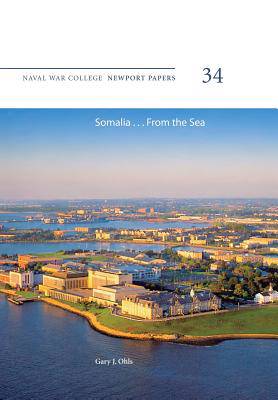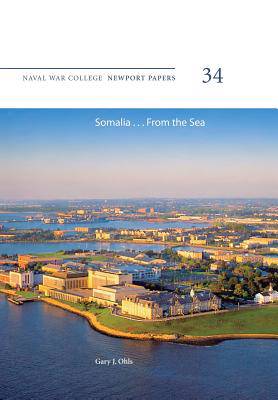
- Afhalen na 1 uur in een winkel met voorraad
- Gratis thuislevering in België vanaf € 30
- Ruim aanbod met 7 miljoen producten
- Afhalen na 1 uur in een winkel met voorraad
- Gratis thuislevering in België vanaf € 30
- Ruim aanbod met 7 miljoen producten
Zoeken
Somalia ... From the Sea
Naval War College Newport Papers 34
Naval War College Press, Gary J Ohls
Paperback | Engels
€ 34,95
+ 69 punten
Omschrijving
At the end of the decades-long Cold War, the United Stated displayed its military capability in a positive manner by responding to a severe humanitarian crisis in Somalia. The goal of providing assistance amid starvation and a chaos appealed to the better natures of the American people and their leaders. Highly influenced by media coverage of starvation and privation, most American happily embraced a series of operations conducted by their government to alleviate the suffering that appeared pervasive through that African nation. Regrettably, the best of intentions could not prevent a continuing drift toward disorder, and the American relief effort devolved into conflict and bloodshed. Although the operations were not entirely without success, the violence and casualties incurred during these actions left a bitter impression that influenced American foreign policy and military thinking for some time thereafter. In "Somalia ... From the Sea," Professor Gary J. Ohls has written an account of those experiences and their subsequent impact on the policies of the United States. Despite the fact that American incursions into Somalia entailed the joint effort of all U.S. services, naval expeditionary forces provided the preponderance of force during much of the involvement. Professor Ohls illustrates this while analyzing the operational and strategic aspects of these events. This is an account of the Somali military relief effort and its impact on the policies of the United States. Although American intervention in Somalia entailed joint effort by all U.S. services, naval expeditionary forces provided the preponderance of force. Three aspects of this study make it unique among the literature about the Somalia experience. First is the effort to address all the military actions of the period-from EASTERN EXIT through UNITED SHIELD. Many accounts have covered one or several aspects, but no major study has addressed the entire series or attempted to describe and analyze their interrelated nature. A second unique element is its inclusion of the U.S. Navy's contribution to America's Somalia involvement. The naval contribution has generally been left out of accounts. The third unique aspect of this study is its intention to connect the Somalia interventions and the operational and strategic concepts of the time. This element of the subject is fascinating, since the two activities, operations and concept development, occurred simultaneously and interactively. Through this analysis we not only understand the activity of the early 1990s but gain a broad insight as to how concepts are influenced by action.
Specificaties
Betrokkenen
- Auteur(s):
- Uitgeverij:
Inhoud
- Aantal bladzijden:
- 256
- Taal:
- Engels
Eigenschappen
- Productcode (EAN):
- 9781478386513
- Verschijningsdatum:
- 7/08/2012
- Uitvoering:
- Paperback
- Formaat:
- Trade paperback (VS)
- Afmetingen:
- 170 mm x 244 mm
- Gewicht:
- 412 g

Alleen bij Standaard Boekhandel
+ 69 punten op je klantenkaart van Standaard Boekhandel
Beoordelingen
We publiceren alleen reviews die voldoen aan de voorwaarden voor reviews. Bekijk onze voorwaarden voor reviews.











